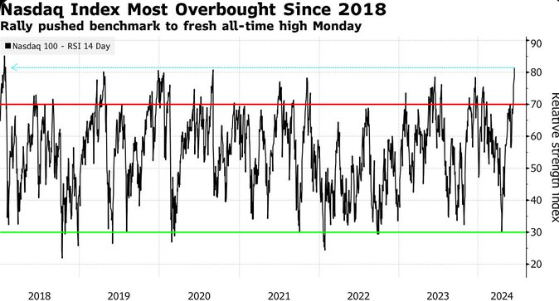The anxiety level has escalated in most investors. With a president doing all he can to topple the dollar and bankrupt the U.S., we all see the writing on the wall.. It is only a question of when it all happens.
Financial experts are raising concerns about the current trajectory of the stock market, particularly noting the meteoric rise of Nvidia, whose market value recently hit $3 trillion. This valuation boom is primarily fueled by the excitement surrounding artificial intelligence. Financial commentators Pam Martens and Russ Martens have made worrying comparisons between today’s market dynamics and those of the dot-com bubble of the late 1990s, which led to a significant market downturn.
Market crash ahead? Analysts draw parallels to the 1929 collapse, citing rising debt and geopolitical tensions. 📉 Could this signal a buying opportunity for savvy investors?
How are you adjusting your portfolio? #StockMarket #Investing pic.twitter.com/1RPanVWdVp
— Money Masters (@MoneyMasterss) June 23, 2024
The situation also mirrors the prelude to the 1929 Great Depression, where a mix of euphoria and speculation drove market values to unsustainable heights, disconnected from economic fundamentals. Nvidia’s significant growth reflects true advancements in AI, yet there’s a risk that its stock price is moving beyond realistic economic underpinnings, potentially priming it for a sharp decline.
Economist Harry Dent, in a discussion on economic channels, predicted a market crash surpassing the severity of the 2008 financial crisis. Dent highlighted the unprecedented nature of the current market bubble, sustained by government interventions over the last decade and a half. He suggested that history shows no major bubble ends well, predicting drastic drops in major market indices, with Nvidia potentially falling by as much as 98%.
US STOCK MARKET WARNING:
NASDAQ index is now the most overbought since February 2018 when Volmaggedon happened.
The RSI is even higher than before the 2020 COVID crash.
This comes after the US tech stocks index has rallied by 19% year-to-date.
Is this a time for correction? pic.twitter.com/WZ8WgQ5LbD
— Global Markets Investor (@GlobalMktObserv) June 19, 2024
Analysts have flagged several warning signs over the past year, including inflationary pressures and a strict monetary stance from the Federal Reserve. Despite a recent easing in inflation, the Fed’s reluctance to cut rates suggests a continued tight liquidity scenario, potentially leading to market contractions.
Moreover, the stock market’s current volatility, with high valuations particularly in the tech sector, is driven more by speculative trading than by robust company fundamentals. This has set the stage for a ‘bubble’ scenario, where minor shifts in investor sentiment or economic signals could trigger a substantial sell-off, reminiscent of the crashes following the year 2000, 2008, and potentially echoing the 1929 collapse.
🇺🇸US stock market is in the “bubble of all bubbles” which will lead to an epic stock market crash next year and potentially usher in a Depression warns Economist Harry Dent pic.twitter.com/EDslwFmYQx
— Ajay Kashyap (@EverythingAjay) June 21, 2024
During a CNBC interview, Sam Stovall of CFRA Research voiced concerns about an imminent major market correction. He pointed out that only the tech sector has significantly outperformed, likening the market to a “jumbo jet flying on one engine” and questioning the sustainability of its current trajectory without significant upward revisions to earnings estimates. This situation poses a risk that could see the market struggle to maintain its lofty levels.
Major Points:
- Financial commentators are concerned about the stock market’s trajectory, especially Nvidia’s surge to a $3 trillion market cap, fueled largely by AI enthusiasm.
- Comparisons are drawn to the late 1990s dot-com bubble and the pre-Great Depression era, suggesting current valuations may be driven more by speculation than fundamentals.
- Economist Harry Dent predicts a severe market crash, potentially worse than the 2008 financial crisis, with significant declines forecasted for major indices and Nvidia.
- Persistent inflationary pressures and the Federal Reserve’s firm stance on interest rates contribute to fears of a tightening liquidity and a possible market contraction.
- The market’s high volatility, especially in the tech sector, is seen as a bubble fueled by speculative trading, with a real risk of a major correction reminiscent of historical market crashes.
TL Holcomb – Reprinted with permission of Whatfinger News



